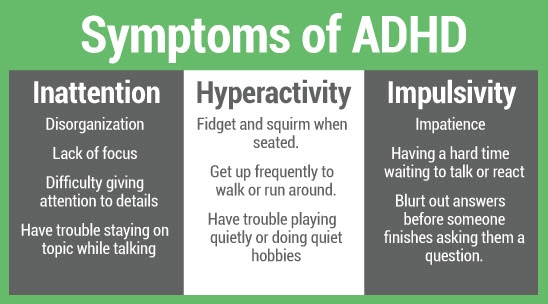ADHD, or Attention Deficit Hyperactivity Disorder, is a neurodevelopmental condition that affects millions of adults worldwide. While commonly associated with children, ADHD can persist into adulthood, posing unique challenges for individuals in various aspects of their lives, including work, relationships, and personal fulfillment. Fortunately, there are numerous treatments available to help adults manage ADHD symptoms effectively. In this comprehensive guide, we delve into the spectrum of ADHD treatments for adults, exploring therapeutic approaches, medications, and the role of specialized ADHD hospitals.
Understanding ADHD in Adults
Adults with ADHD often face difficulties with attention, impulse control, and hyperactivity, which can manifest in various ways depending on individual circumstances. Some adults may struggle with maintaining focus at work or in academic settings, while others may experience challenges in organizing tasks and managing time efficiently. Additionally, impulsivity and restlessness can impact personal relationships and overall well-being.
Therapeutic Interventions
Therapy is a cornerstone of ADHD treatment for adults, offering valuable tools and strategies to cope with symptoms and improve daily functioning. Cognitive Behavioral Therapy (CBT) is particularly beneficial for adults with ADHD, focusing on identifying and challenging negative thought patterns and behaviors. Through CBT, individuals can learn practical skills such as time management, organization, and problem-solving, empowering them to navigate life's challenges more effectively.
Another effective therapeutic approach for adults with ADHD is psychoeducation, which involves learning about the nature of ADHD, its impact on daily life, and effective coping mechanisms. Psychoeducation can help individuals develop a deeper understanding of their condition and reduce feelings of shame or inadequacy often associated with ADHD.
Medication Management
Medication can play a crucial role in managing ADHD symptoms for many adults. Stimulant medications such as methylphenidate and amphetamines are commonly prescribed to increase dopamine and norepinephrine levels in the brain, enhancing focus and impulse control. Non-stimulant medications like atomoxetine and guanfacine may also be recommended for individuals who do not respond well to stimulants or have concerns about their side effects.
It's essential for adults considering medication for ADHD to consult with a qualified healthcare provider to determine the most appropriate treatment approach based on their unique needs and medical history. Regular monitoring and adjustment of medication dosage may be necessary to achieve optimal symptom management while minimizing potential side effects.
Lifestyle Modifications
In addition to therapy and medication, adopting certain lifestyle modifications can complement ADHD treatment for adults. Regular exercise has been shown to improve attention, mood, and overall cognitive function, making it an essential component of a holistic treatment plan. Engaging in activities such as yoga, meditation, or mindfulness practices can also help adults with ADHD cultivate greater self-awareness and emotional regulation.
Moreover, establishing routines and implementing organizational strategies can significantly enhance productivity and reduce stress levels for adults with ADHD. Simple habits such as using calendars or planners, breaking tasks into smaller steps, and setting reminders can make a substantial difference in daily functioning.
Supportive Services
For adults with severe or complex ADHD symptoms, seeking support from specialized ADHD hospitals or clinics may be beneficial. These facilities offer comprehensive assessment and treatment services tailored to the specific needs of individuals with ADHD. From diagnostic evaluations to personalized treatment plans, ADHD hospitals provide a multidisciplinary approach that may include psychiatrists, psychologists, therapists, and other healthcare professionals.
In addition to clinical services, ADHD hospitals often offer educational resources, support groups, and skills-based workshops to empower individuals with ADHD and their families. By fostering a supportive and understanding environment, these specialized facilities play a critical role in helping adults with ADHD thrive in all aspects of their lives.
Navigating Challenges and Celebrating Successes
Living with ADHD as an adult can present various challenges, but it's essential to remember that effective treatment and support are available. By proactively addressing symptoms through therapy, medication, lifestyle modifications, and supportive services, adults with ADHD can cultivate resilience and unlock their full potential.
Celebrating successes, no matter how small, is also crucial in the journey of managing ADHD. Recognizing accomplishments and progress, whether it's completing tasks on time, improving focus at work, or strengthening relationships, can boost self-esteem and motivation.
Conclusion: Empowering Adults with ADHD
In conclusion, ADHD treatments for adults encompass a diverse range of interventions aimed at mitigating symptoms and enhancing overall well-being. From therapeutic modalities and medication management to lifestyle modifications and supportive services offered by ADHD hospitals, individuals with ADHD have access to comprehensive support systems to help them thrive. By embracing a holistic approach to treatment and actively engaging in self-care practices, adults with ADHD can navigate life's challenges with confidence and resilience, fulfilling their potential and leading fulfilling lives.


No comments yet